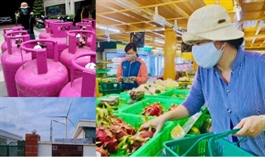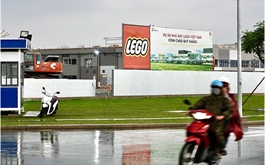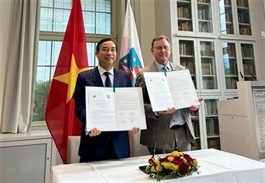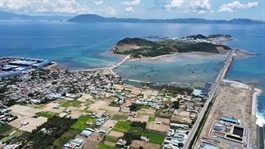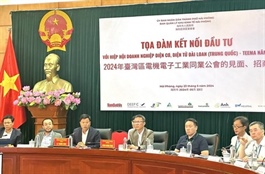Vietnamese firms urged to watch global trade policies
Vietnamese firms urged to watch global trade policies
Firms should keep an eye on global trade moves by major economies to figure out how best to promote the consumption and export of products made in Việt Nam, in the context of a glut of cheap Chinese goods flooding the world market, according to experts.
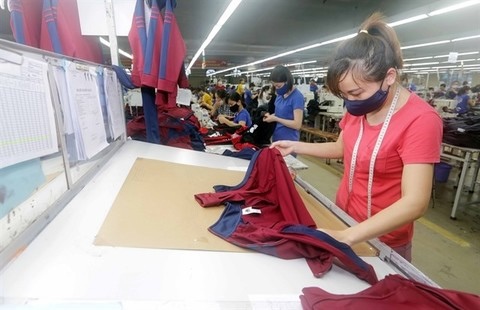
Garment production at a factory in Thái Nguyên Province. Vietnamese firms are looking to enhance their competitiveness against Chinese products both domestically and internationally. — VNA/VNS Photo Trần Việt |
The US and EU are talking tough actions to curb cheap Chinese exports.
US President Joe Biden directed increases in tariffs across strategic sectors such as steel and aluminium, semiconductors, electric vehicles, batteries, critical minerals, solar cells, ship-to-shore cranes and medical products to protect US manufactures from China’s unfair trade practices.
An article in the The New York Times noted that Biden’s China tariffs are the end of an era for cheap Chinese goods.
US Treasury Secretary Janet Yellen earlier this week called for the EU to join the US in curbing imports of cut-price Chinese goods, warning that a surplus of cheap products from China could threaten the survival of factories elsewhere.
The EU has taken actions to tackle Chinese subsidies in various industries, triggering fears of a trade war.
Lê Tiến Trường, Chairman of Việt Nam National Textile and Garment Group (Vinatex), said that the competitiveness of Chinese goods is not only dependent on prices but also on the trade policies of the US and the EU.
The US and EU’s moves to raise tariffs on Chinese products might provide opportunities for Vietnamese goods to compete in foreign markets.
However, Trường said it is difficult to compete with China in making popular products, especially when labour costs are no longer a competitive advantage for Việt Nam.
He pointed out that Vietnamese companies should go into niche markets instead.
According to Vũ Kim Hạnh, Chairwoman of the Business Association of High Quality Vietnamese Products, in order for Vietnamese goods to be more competitive in the global market, further improvements to the business environment are needed, along with more efficient policies to promote the development of domestic enterprises.
With an overcapacity and a slowdown in domestic consumption, China is increasing exports to revive its economy.
The surfeit of cheap Chinese goods is also threatening major industries in Việt Nam.
For example, soaring imports of hot rolled coil (HRC) from China in recent months have created significant pressure on domestic manufacturers.
Statistics from the General Department of Customs show that HRC imports reached 890,000 tonnes in April alone, 1.5 times higher than the domestic total output. Of these imports, HRC from China accounted for 71 per cent.
Lê Quốc Phương, former Deputy Director of the Trade and Industry Information Centre under the Ministry of Industry and Trade, said that firms need to look for ways to compete with Chinese products not only in the domestic market but also internationally.
The focus should be on upgrading production technology to improve quality and lower costs.



